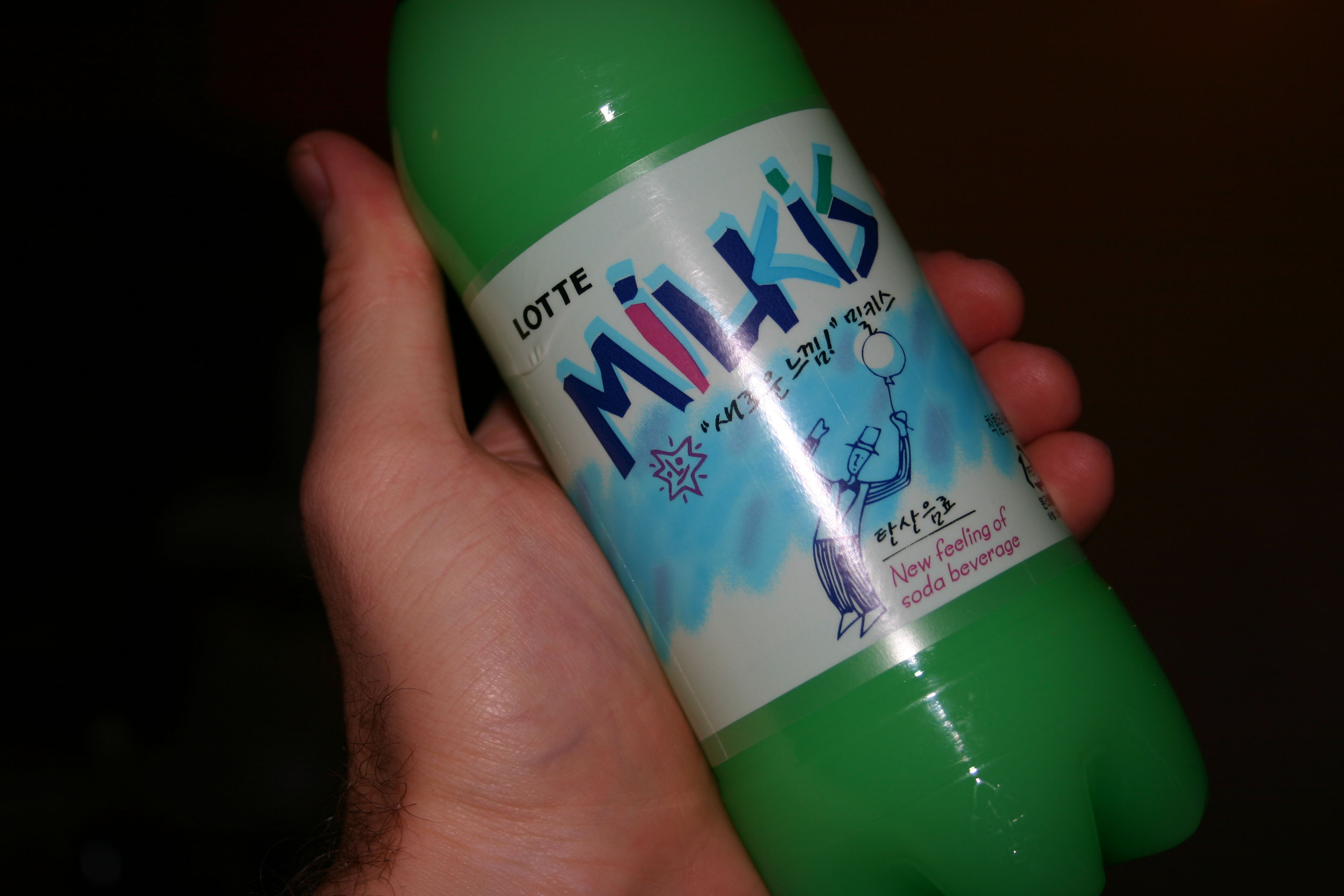Let's focus on the offer and the acceptance for a moment. You understand the concept in any situation generally. But, some situations require a further line of explanation due to the arguments that transpire when someone runs out of stock and there is a note on the fine print at the cashier counter that says all prices are subject to change and are subject to product availability or it says "while quantities last" or "best offer". We would call this scenario not an offer but an invitation by the seller to consider offers or to treat offers; an invitation to treat.
A "While quantities last" item could involve a whole box of Marlboro cigarettes imported from Germany or a shelf of bananas on sale for .30 pence/ pound or 58.0 ¢/lb. It could be an airline seat in economy but it is only available until sold out where the airline confirms the ticket price is "subject to availability" or while quantities last. If they run out, they do not want to be sued for loss of bargain or a failure by the offeror to complete the deal, accept the money and provide the goods requested.
When you see such terminology in the advertising such as "best offer", "prices subject to change" or "while quantities last" or any items on sale in a retail environment, you consider this advertising an "invitation to treat offers" and the offeror says he agrees to accept the suggested listed price that he has advertised. But, because he knows he could run out of stock he cannot obligate himself in an OFFER of the goods that could be accepted by anyone any where unilaterally at any time where they could say they accepted the advertised offer and travelled 12 miles on the # 141 bus passed the west side of Stoke Newington or 12 stops on the overground train from Mhres-tham Nayr to buy those Costa Rican Bananas or Namibian Bananas at Morrisons. Maybe they travelled from Helptham Aye.
In some cases these days, the retailer will accept a lower price on a price match agreement if you bring evidence of a lower advertised price from another retailer for the intended item. As such, he says he is inviting you to make offers that he will consider and its usually that you will pay what is advertised in the store; maybe less money if you work hard to price match for lower prices for all items on our intended grocery list. You would not price match to pay a higher price or the same price but a lower price. It only takes a minute to get the advertised lower price from the newspapers or online if you are not a lazy rubbish bugger.
Write down your list and make an offer to the retailer as he invited you to make price match offers to him so that he can consider them in his invitation to treat/consider offers. So an invitation to treat is an offer to the public to consider offers.
The issue here is when the travelling shopper could show up and say that because he understood your advertising as an offer, accepted it and travelled to confirm the agreement, you owe him at least one banana at that price from the country advertised and maybe those bananas will not be available again; sold out and he needs them to make special pancakes! So, then the retailer would be liable for what they call a loss of bargain and breach of contract and could be sued for damages by any potential consumer that could accept the offer but the retailer has run out of stock. So, then the retailer, instead, is inviting offers for the retailer's consideration from consumers at the price listed generally or under the price match plan.
The consumer comes to the shop, collects his selection of goods and will arrive with the items in hand at the cash register if they are available and then makes his offer to buy at a particular price. The retailer will then accept, take payment and provide the written receipt and agreement with terms and conditions for the store warranty and returns policy. This shop receipt is evidence of a contract.
The retailer turns on the cash register, takes the consumers card, swipes it and it says "Declined" because it is expired. So, the consumer takes another card out of his coat and tries again, swiping it and the cash register says "Approved." The receipt is provided. He also buys some Mentos with the few pound coins in his pocket and goes home to make Namibian banana pancakes.
Now, what if the consumer is an unregistered, undocumented human using a card stolen from a traveler at a hostel in London called the "The Bird Oh"; Repent and Leave Now Before A Worse Thing Befalls You If You Think You Are the Best"?
There were 4 travelers to a room in single beds and the victim traveler forgot to lock his bag and he had no android robot toy to watch it for him in his brief absences when he went for a jog in the morning or to the toilet after the buffet breakfast. He used to have an android toy, but the thief at some other hostel picked it up and took it since it was not fastened to a wall, desk or floor. Maybe his card was in his coat pocket under his pillow, not on his back and not in his jeans pocket when "emergency" running to the washroom in the dark at 2 am.
Maybe he was robbed when he had a room all to himself in a reasonable Holiday Inn type hotel and ordered a one month stay online at $£900.00 currency. But what if because he did not tip the waiter after the A La Carte table service with 30 pence left on the table, the former hotel employee from another Anglo country turned hotel robber and fugitive London hotel day worker decided to break into his room using the maid service master key when he was showering and take the card right out of his wallet as left on his bed, took it to the front desk and tapped it for the tip pool; 1 pound and not .30 pence? Did he give the card to someone else to hide his nefarious tracks; someone unknown that turns out to be the consumer buying bananas without any documentation for identity?
Would the purchases be the property of the robbed traveler since the money credit is the traveler's money or is it the property of the undocumented consumer? The answer is neither since it is a theft achieved with a stolen card for those 4 or 5 transactions.
The consumer is now undocumented because he went to an establishment in Soho with his ID but was knocked out on the way out because he stayed too long and would not leave when he heard "last call" or "closing." When he woke up, he was in Regent Park with no shoes on. A set of tourists from Cambodia were looking at him. They left him with a bottle of "Milkis or Whatisthis?". A female cook came from "Gol Hot Foods" and spat in his face and said, "Fuey I spit on you if you don't come to eat...go to see the man about the dog and he will help." The man with the dog was the fugitive hotel employee who gave him the stolen card. As undocumented with no passport and no other ID can he own anything formally, legally or register anything if he does not have evidence of his existence that way legally and is unable to prove his existence? It is that real wealth begins with formal registration of the person as a legal entity and then of property that includes money and would you prefer gold bars or the 1/10 of 1% of the sales tax generated daily so you can buy gold when ever you wish with the moneyed worth? How much gold can you buy of you do not have a legal identity? Who would sell it to you? You may want to try a legal identity; a formal alias conduit identity maybe. He noticed that in his experience he became hyper covetous and became very agitated about anyone that formally owned more than the food in their cupboard or the clothing on their backs because that formal ownership is formal wealth; if they owned a name or a label. So, he decided to get his ID back and confirm his titles of ownership for all of his mopeds and scooters or at least register them formally. He went back to the pub and asked for a deal of some kind. He made an offer. He had to pay what amounts to two nights hotel stay or ten nights but he learned his lesson. The pub accepted.
. Examples may involve the car dealer also where they may say the price for the 2009 Ford Focus RS9 in Green is £10,000.00 but you can make an offer for a few 100 pounds less off the listed price and hope the seller will agree at £9,300.00 and he may say he will finally agree at £9,800.00 to accept this amount.
What if you wanted to order 12 Focus vehicles you hear are available for import from Germany to be shipped in containers with VAT tax included at £10,000.00 each. So, what is the purchase price for all 12 vehicles? You have to pay shipping and insurance at $1.00 USD per km per vehicle to be shipped from Bonn, Germany to Feltham. What is the cost of shipping in Euros and in pounds? The exchange rate to convert USD to Pounds is $1 USD = 80 pence. So, then you will take the USD amount and multiply by .80 to get the amount needed in pounds and multiply by .94 for Euros when $1 USD= 94 cents Euro. They had to buy wheel covers for all 12 vehicles. How many wheel covers do you need? Each wheel cover is $5.00 each. How much do you have to spend? There is a windshield cover with 4 angles in its rectangular, 4 sided polygonal shape. Each corner has an angle. Two angles are about 98 degrees each. What is the measurement of the other two angles when all 4 angles have to add up to 360 degrees?
You can use the dock at Greenwich as the final destination dock and you need to work out the distance from Bonn using google to answer the insurance question?
//////////////////////////////////. See the numerical answers by next Saturday.
Total price £120,000.00.
https://www.rmg.co.uk/sites/default/files/styles/full_width_1440/public/2021-10/2.jpg?itok=_K-OzX7f
Review the Chapelton v. Barry UDC case one more time. Then read Partridge v Crittenden [1968]. ClIck the link.
.....Generally, advertisements are not offers but invitations to treat, so the person advertising is not compelled to sell. In Partridge v Crittenden [1968] 1 WLR 1204, a defendant who was charged with "offering for sale protected birds"—bramblefinch cocks and hens that he had advertised for sale in a newspaper—was not offering to sell them. Lord Parker CJ said it did not make business sense for advertisements to be offers, as the person making the advertisement may find himself in a situation where he would be contractually obliged to sell more goods than he actually owned.




Comments
Post a Comment